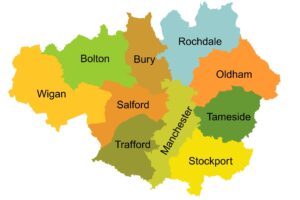Gavin Short, Customer Experience Manager at United Welsh, provides readers with an insight into how horrific factors currently impacting the social housing sector have caused residents and staff members mental health to severely decline.
The world of social housing is changing. The cost-of-living crisis, shortage of affordable housing, worsening mental health and overstretched public services have all contributed to a shift in the role of the customer service team.
With one in five people in the UK in poverty, according to the Government’s 2021/2022 annual ‘households below average income’ report, and a disconnect between how quickly the cost of properties are going up versus the increase in wages, people are struggling to afford their own homes. The costs of the private rental sector have also been rising and many landlords are pulling out of the market, leaving a real shortage of affordable homes, with many turning to social housing as their best option.
The Commons Library Research Briefing on mental health statistics in England, reported in March this year that depression has increased to 27% among people who are renting, and that rates of depression were particularly high among those with lower incomes. These are the people who make up our client base and who we are trying to help on a daily basis.
Distressed callers
All the factors I have mentioned have resulted in a noticeable increase in the number of calls to our customer services’ team from individuals who are very distressed and sometimes suicidal. Something, until recent months, we’ve never had to deal with before. On average, we might now have three to four calls per month where one of our advisors needs to talk down a customer before we can alert the emergency services.
It would be unthinkable for someone to ring their private landlord and discuss a mental health crisis, but in social housing it is becoming more common for a customer service team to become like a fourth disaster response team.
For example, one of our call handlers recently spoke to a customer, who explained he was in financial difficulty and struggling to make ends meet. He communicated feelings of hopelessness, extreme anxiety, not having anyone to turn to for help and support and said his only option was to ‘make it all go away’.
Whilst on the call, he informed our call handler that he’d been saving up his medication and was going to take an overdose whilst on the phone. Thankfully, our customer advisor handled the call very well and the police and ambulance service responded in time to help him at his property.
Some police forces will respond in these situations, but others won’t, even with the same given criteria. One of the biggest challenges our team is facing is trying to help these desperate people in need who call our customer services line.
Addressing new challenges
These new challenges have led us to put certain measures in place to help protect and support our staff when dealing with these difficult calls. These involve:
- Accurately recording the right information of a case
- Working with the Police to understand their thresholds and criteria so that questions can be planned in advance accordingly
- Ensuring safeguarding referrals are prompted to specialists
- Continuing to foster cross organisational partnerships and shared good practice with other housing associations
- Listening and supporting our team with a duty of care process
Team duty of care
However, although people in customer service roles have a duty of care to ensure tenants’ wellbeing is being looked after, staff members’ mental health can often be forgotten about. One huge example that dramatically affected both tenants and social housing providers was Covid-19. The deadly virus forced people to stay isolated at home, thousands of people lost their jobs or were furloughed. As a result, we introduced a serious of measures to ensure staff could be as happy as possible.
These include having a debrief immediately after a difficult call, a mandatory break, a routine touch base two to three days later and access to a well-being service officer.
We also introduced a social media management platform, by Orlo, which helps us respond more quickly to common enquiries and FAQ’s, taking some of the call volume away from our call handlers, who then have more time to deal with the more complex enquiries which need to be handled sensitively. We’ve also found that many of our customers like communicating with us on social media platforms as it gives them the opportunity to message us out of work hours or ‘on the go’ rather than holding on the phone to speak to one of our customer services team.
Our customer services team have a huge role to play in helping people with their housing enquiries and coping with today’s pressures. We are still learning how we can help fill the gaps left by other public services, but with the right procedures and technology in place, we can support our customers’ lives better and the well-being of our team.
Our customer services team have a huge role to play in helping people with their housing enquiries and coping with today’s pressures. Unfortunately there seems to be no end in sight as to when property stresses will begin to loosen, but with time and the right procedures and technology in place, both social housing staff and residents should hopefully feel a sense of ease.
Images: United Welsh and Taylor Grote
More features:
Permitted Development Rights Consultation: a bid to solve the housing crisis

















Leave a Reply